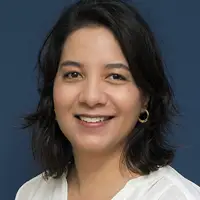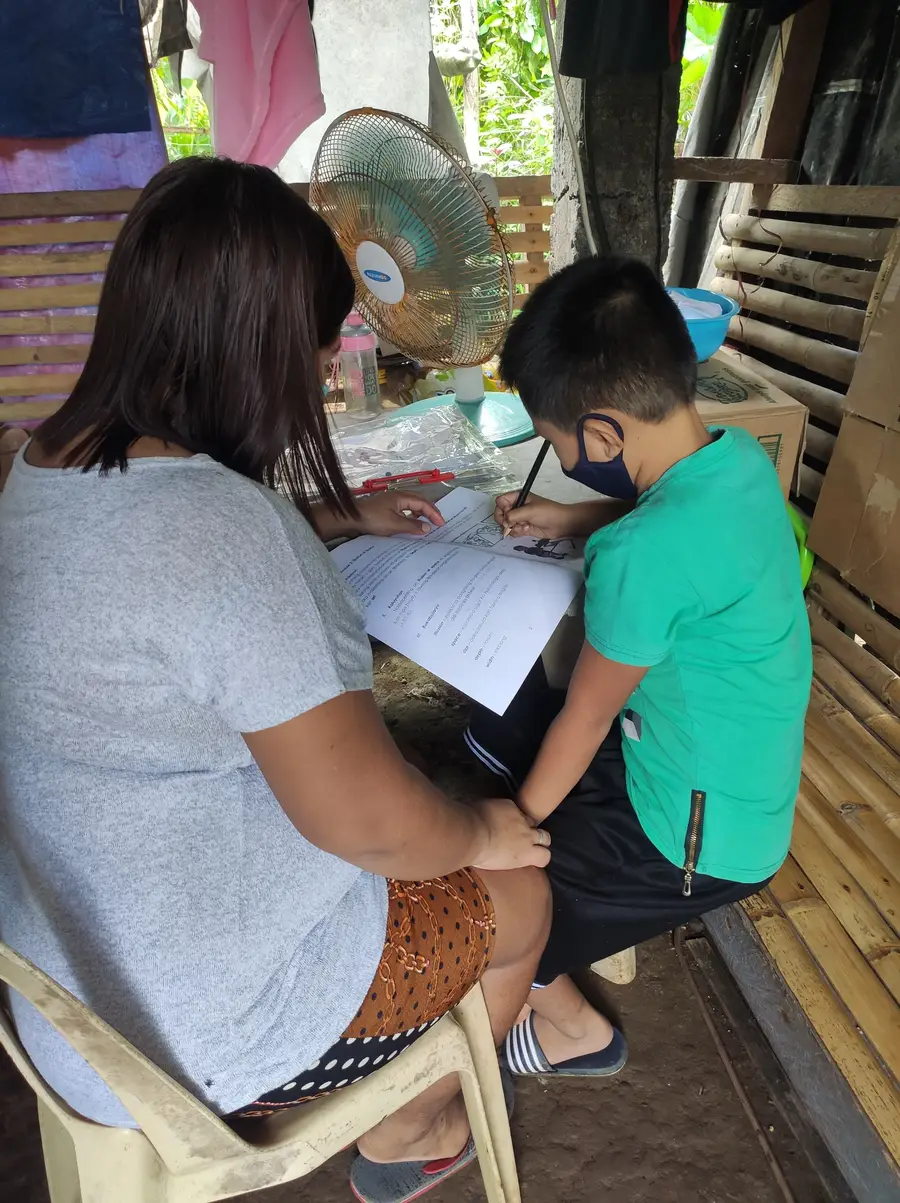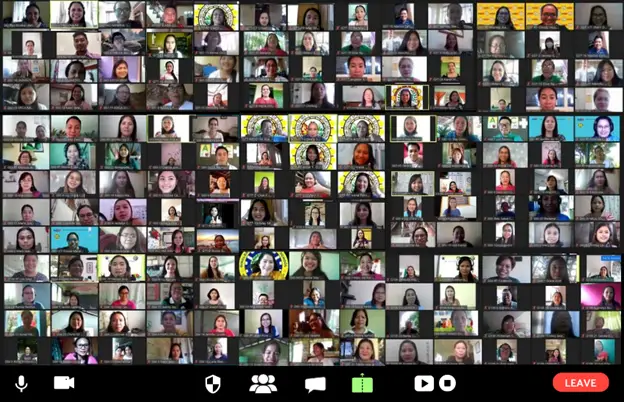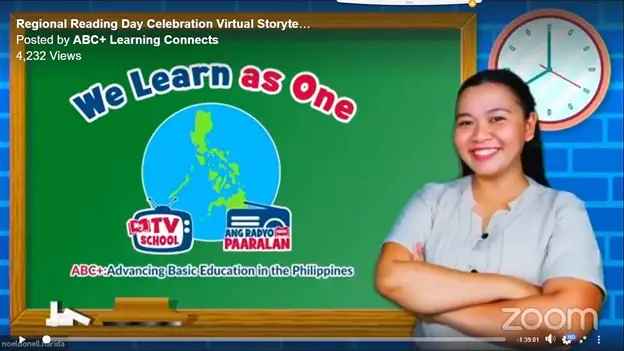This article was written by Paula Marchena Cross with inputs from Ana Robledo, Ina Aquino, Armida Elaine Umali-Trinos, Alea Macam, Kaye Sucgang, and Emil Monroy.
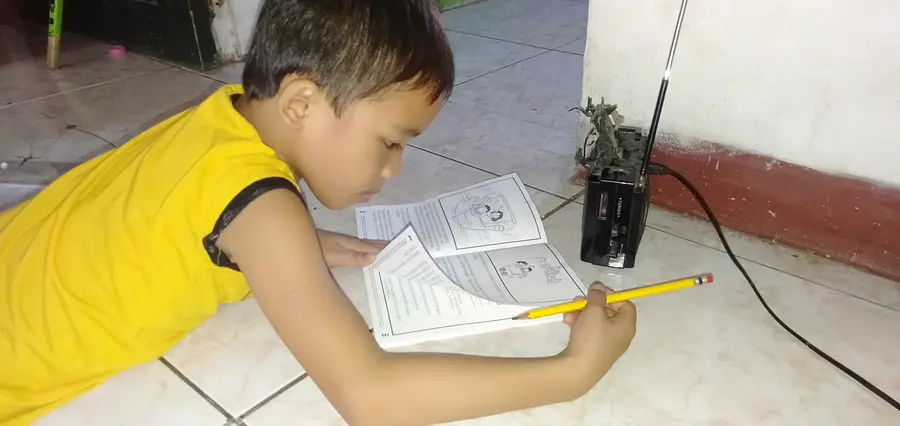
Twenty-two million Filipino children started school on October 4th. From home. And thanks to the ABC+: Advancing Basic Education in the Philippines project, 5,000 teachers are better prepared for this new reality.
ABC+, funded by the U.S. Agency for International Development, works in partnership with the Philippine Department of Education (DepEd) and is supporting learning continuity during the COVID-19 pandemic and, in the process, documenting effective approaches.
DepEd's country-wide Basic Education-Learning Continuity Plan requires a modular, home-based learning approach for students through the 2021 school year. This is being accomplished through interactive television and radio instruction, online open educational resources, and print-based self-learning modules. This new reality brings new challenges for everyone. Lack of internet connectivity prevents many families from accessing online learning resources or live instruction, so teachers face a significant challenge in making sure learning happens at home and no children fall behind. They also face challenges in their own professional development at a time when a great deal of new knowledge and skills are urgently needed, but traditional in-person trainings and communities of practice are not possible.
Prior to the pandemic, training sessions were planned for the summer months (March-May 2020) but since then the approach has had to be completely redesigned,” noted Armida Elaine Umali-Trinos, ABC+’s Instructional Delivery and Materials Advisor. “When COVID-19 hit in March we were hopeful it would improve [before the training], but by May we knew we had to drop the in-person training sessions,” Umali-Trinos explained.
Rethinking Teacher Training
First, the training team revised a blended learning approach originally planned as a combination of face-to-face and online instruction into a fully online training. The goal was to still enable quality interactions in medium-size groups while ensuring ample small group and self-directed practice, facilitated and managed as simultaneous training batches. The training sessions offered teachers strategies for early grade language learning and transition and for improving literacy in school and at home.
For the training to be successful, it was important to identify what technologies fit best. The team surveyed more than 3,000 teachers about their access to technology, familiarity with different technology tools, and internet connection and speed. Based on these findings, they decided to use Zoom for live activities, combined with Messenger and Google Classroom for asynchronous activities and ongoing support.
The training agenda, which originally was eight hours a day over five days and 18 different content sessions, became a five-day course, with three hours of live online sessions and four hours of self-paced work each day. The content was compressed to five thematic topics focused on two main instructional strategies, and the self-paced hours gave teachers time to create learning activity sheets for grades K-3 based on the principles discussed in the live sessions. As teachers learn the strategies in their online Zoom sessions, they are given the opportunity to apply what they learn through task-based outputs they complete offline and submit for review.
This really is a new approach in working with DepEd, streamlining G-Suite for trainings, and we are learning a lot in the process," said Armida Elaine Umali-Trinos
Supporting and Building Skills of Teachers
To support teachers to use the technology, the project team conducted a pre-training orientation to make sure teachers felt comfortable with the tools. The project also had technical support available during trainings to help participants if needed.
Despite challenges with technology access and connectivity, the project trained more than 5,000 teachers in the first round of training. In addition to covering all traditional content, the training helped teachers gain confidence working online and become comfortable speaking on camera. ABC+ also shared knowledge on online facilitation and provided tips to teachers on ways to become more comfortable in using technology.
The more teachers were exposed to technologies, the more confident they became in navigating them for their own purpose,” explained Umali-Trinos.
This first teacher training package served as a pilot, with two more training series to come. “It will be easier in the future,” said Umali-Trinos, “because of the collective work that the ABC+ team has already done.” Some participants even expressed how it was the kind of training they had been looking for a long time, added Ina Aquino, ABC+ Chief of Party.
Emil Monroy, the program’s ICT for Education Learning Specialist, noted that this experience required mobilizing everyone in the project as Zoom meeting facilitators, to provide technical support, monitor participation, and facilitate breakout-rooms. There were up to 50 simultaneous online sessions at time, so that teachers could benefit from small group interaction.
Lessons Learned and Opportunities
In addition to successful content delivery, the training provided lessons and practices that ABC+ can apply to successive training rounds, such as:
- the importance of “learning by doing”: having teachers in training work on preparing actual lesson plans and instructional materials.
- accepting that “less is more” and adjusting the size and pace of the sessions to be smaller and more focused, allowing for more robust interaction among learning cohorts.
- the need to build and sustain a pool of tech-savvy individuals, led by DepEd.
- being intentional in the design and delivery so that this training model is not just an emergency alternative but paves the way for effective alternative learning delivery in the future.
In a challenging context, the ABC+ team was able to create a solid training that better prepares teachers and consequently, better serves learners. In June 2020, the DepEd National Educators Academy of the Philippines (NEAP) accredited ABC+ as one of its learning service providers for professional development programs in line with DepEd’s priorities for 2020-2023. This has meaningful and positive implications for all teachers who participate in subsequent trainings and will contribute to the sustainability of these proven training approaches.
